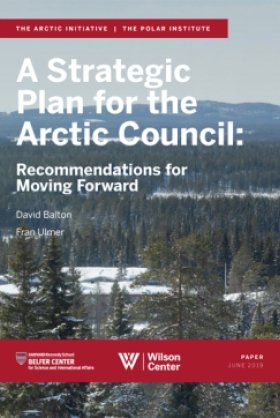A Strategic Plan for the Arctic Council: Recommendations for Moving Forward


For the first time since its creation in 1996, the Arctic Council failed to reach agreement on a Ministerial Declaration when it met in Rovaniemi earlier this month. Such Declarations signed at each past Ministerial meeting have served to highlight the Council’s programs and projects over the prior two years and to chart new work that the Council would undertake during the next biennium.
This unfortunate turn of events raises serious questions about the ability of the Arctic Council to continue to play the constructive role that has been its hallmark in helping to keep the Arctic Region peaceful and cooperative despite growing geopolitical tensions relating to other issues and to other areas of the world. With Finland’s chairmanship of the Arctic Council now at an end, Iceland takes up the mantle without the clear alignment of purpose and interests that past Ministerial Declarations have reflected.
This report, co-authored by Ambassador David Balton, Senior Fellow of the Polar Institute at the Wilson Center, and Fran Ulmer, Senior Fellow at the Belfer Center's Arctic Initiative at Harvard Kennedy School, explores these themes and provides recommendations for how the Arctic Council can continue to be a forum for promoting cooperation in the Arctic.
Authors



Polar Institute
Since its inception in 2017, the Polar Institute has become a premier forum for discussion and policy analysis of Arctic and Antarctic issues, and is known in Washington, DC and elsewhere as the Arctic Public Square. The Institute holistically studies the central policy issues facing these regions—with an emphasis on Arctic governance, climate change, economic development, scientific research, security, and Indigenous communities—and communicates trusted analysis to policymakers and other stakeholders. Read more




